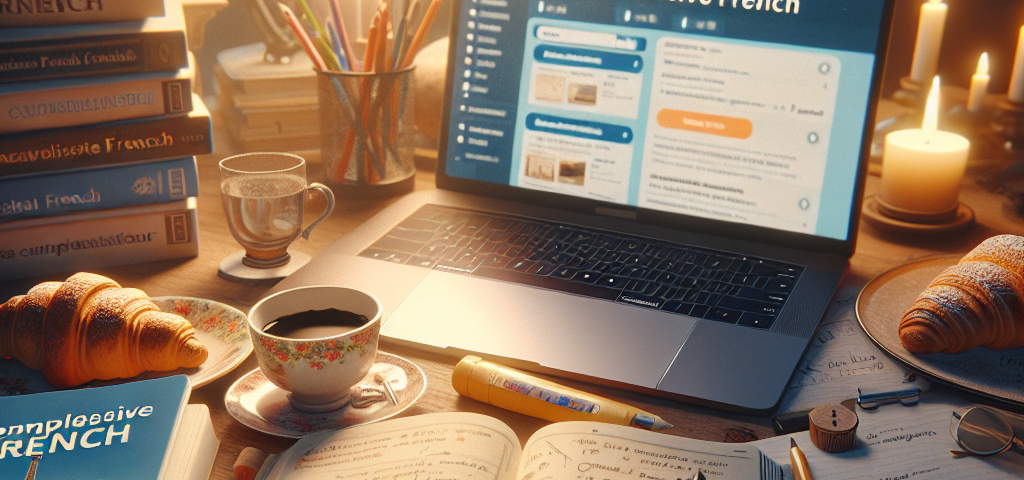
Mastering French Grammar: Essential Tips for Every Learner
May 30, 2025
Your Ultimate Guide to Acing GCSE French Exams
May 30, 2025
Preparing for a French exam can be both an exciting and daunting task. Whether you’re a high school student gearing up for the Bac, a university student aiming for top marks, or an adult learner pursuing fluency, mastering the French language requires dedication, strategy, and effective study techniques. This comprehensive guide will provide you with valuable insights and methods to help you excel.
Understand the Exam Format
Before diving into study techniques, familiarize yourself with the exam structure. Most French exams include the following components:
- Listening Comprehension: Understanding spoken French through audio recordings.
- Reading Comprehension: Analyzing texts and answering related questions.
- Writing: Composing essays, letters, or other forms of written expression.
- Speaking: Engaging in conversations or giving presentations.
Tip: Review Past Papers
Reviewing past exam papers can provide insight into question styles and frequently tested topics. This can help you prioritize your study topics and understand the common formats.
Create a Study Plan
Developing a study plan is essential to ensure you cover all necessary material. Here’s how to structure an effective study calendar:
- Break it Down: Divide your syllabus into manageable sections based on themes, grammar points, and vocabulary.
- Set Milestones: Include milestones to monitor your progress, such as completing specific chapters or mastering particular grammar structures.
- Allocate Time: Dedicate time each week to each subject area, ensuring a balanced approach to listening, reading, writing, and speaking.
Tip: Stick to a Routine
Consistency is key when learning a language. Try to study at the same time daily, reinforcing your learning habits.
Effective Study Techniques
1. Immersion
Immerse yourself in the language by surrounding yourself with French media. Engage with:
- French Music: Listen to songs and analyze lyrics.
- Podcasts: Tune in to French podcasts that discuss various topics.
- Films and Series: Watch French movies or shows with subtitles in both French and your native language.
2. Vocabulary Building
Building a robust vocabulary is crucial. Employ techniques such as:
- Flashcards: Create flashcards for new words and review them regularly using spaced repetition.
- Thematic Lists: Organize vocabulary into themes, such as food, travel, or emotions.
- Contextual Learning: Write sentences using new vocabulary to understand context and usage.
3. Grammar Mastery
Grammar can be challenging, but it’s essential for structuring sentences correctly. Here are some strategies:
- Practice Worksheets: Use grammar exercises to reinforce concepts.
- Interactive Tools: Utilize apps and websites that offer interactive grammar drills.
- Study Groups: Form a study group with classmates to discuss and clarify difficult grammar points.
4. Writing Practice
Develop your writing skills through:
- Journaling: Keep a daily journal in French to practice expressing your thoughts.
- Prompts: Use writing prompts to encourage creativity and structure.
- Feedback: Share your writing with teachers or native speakers for constructive criticism.
5. Speaking Practice
Enhance your speaking abilities by:
- Language Exchanges: Partner with a native French speaker to practice conversational skills.
- Shadowing: Listen to audio recordings and repeat what you hear, focusing on pronunciation and intonation.
- Presentations: Prepare short presentations on familiar topics to practice public speaking in French.
Test-Taking Strategies
As the exam approaches, develop effective test-taking strategies:
- Time Management: Allocate specific times for each section during the exam to ensure you complete all tasks.
- Skim for Context: In reading comprehension, skim texts first for context before diving into questions.
- Stay Calm: Practice relaxation techniques, such as deep breathing, to manage pre-exam anxiety.
Tip: Mock Exams
Conduct mock exams under timed conditions to simulate the actual experience. This will build your confidence and help you identify areas that need improvement.
Conclusion
Mastering the French exam requires a multifaceted approach that combines preparation, practice, and perseverance. By understanding the exam format, creating a structured study plan, and utilizing effective study techniques, you can enhance your skills and boost your confidence. Remember, consistency is crucial, and incorporating various methods will make your learning experience more engaging and effective. Bonne chance!

